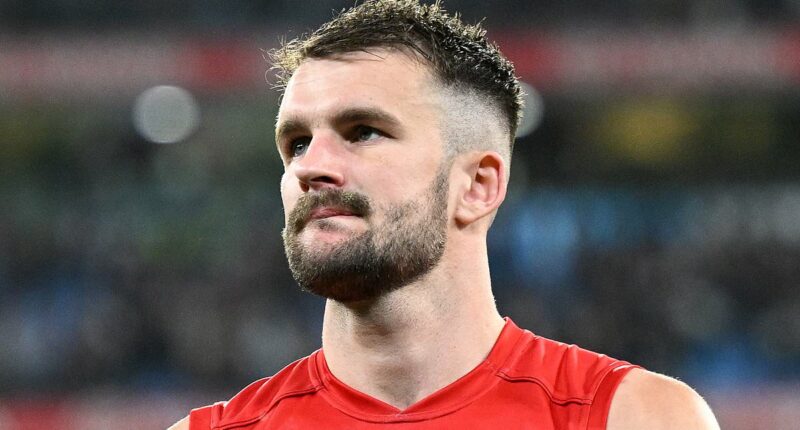Share this @internewscast.com
Body shaming, bullying, and racism emerge as the leading forms of abuse faced by Australian athletes from their peers, according to a groundbreaking study. This research also highlights the widespread presence of illegal drugs in major sports leagues, including the AFL and NRL.
The study’s release follows the high-profile suspension of Melbourne Demons’ Joel Smith, who received a four-year ban last November for cocaine-related offenses. Similarly, NRL star Ezra Mam faced a nine-game suspension and a $120,000 penalty after being caught driving with cocaine in his system and without a license in October of last year.
Ezra Mam, a key player for the Brisbane Broncos, was involved in a head-on collision with an Uber in October 2024, resulting in serious injuries to a young girl, including a fractured hip.
The study reveals a troubling trend: nearly half of athletes and coaches who witness or experience abuse opt not to report it formally.
Additionally, two-thirds of coaches report that illicit drug use is detrimentally affecting their sports organizations.

A study has revealed just how prevalent illegal drugs are in footy codes such as the AFL and NRL (pictured, banned Melbourne Demons star Joel Smith)

Ezra Mam (pictured) accepted a nine-game ban from the NRL and $120,000 fine for driving while cocain was present in his blood
This study, considered a pioneering effort globally, has been labeled a “call to action” by Sarah Benson, Chief of Sports Integrity Australia (SIA).
‘Reports of body shaming, verbal abuse, bullying and racism – often witnessed but not formally reported – remind us that our work is far from done,’ Benson said in an introduction to the study.
The SIA’s inaugural Positive Behaviours in Sport Study was released on Tuesday after a survey of more than 1200 Australian athletes and coaches from 64 sports.
While finding 88 per cent of athletes believe Australian sport is safe and fair, it revealed some concerning undercurrents.
The first study in a five-year research initiative led by SIA found only 51 per cent of athletes were likely to report suspicious doping by a teammate or club member.
One in five athletes reported witnessing body shaming in the past 12 months, with other athletes the main offenders.
Verbal abuse was witnessed by one in three athletes, again with fellow athletes the culprits.
Some 23 per cent of athletes witnessed bullying and 18 per cent witnessed racism, both also with other athletes the main offenders.

Many footy fans felt Mam (pictured, background) should have been rubbed out for the season – he went on to win a premiership ring with the Broncos
Forty per cent of coaches witnessed verbal abuse, identifying parents as chief offenders.
And 32 per cent of coaches reported witnessing bullying while 29 per cent witnessed racism, with athletes again the main offenders.
One in three coaches, and 44 per cent of athletes, believed illicit drugs were negatively impacting their sports organisation.
Some 42 per cent of coaches and 35 per cent of athletes had placed a bet on their main sport.
And 14 per cent of athletes at state or higher levels of sport had been asked to deliberately do something that would disadvantage themselves or their team while competing.
‘I think we’re the only integrity agency that has done research like this in the world, so it’s world-leading,’ SIA’s acting head of sport engagement Alexis Cooper said.
‘The fact the overwhelming majority of participants feel that sport in Australia is safe, fair and fun for everyone is excellent.
‘But … there are some findings in the report that need to be addressed and it’s important that we understand them and take action.’
Cooper said findings which surprised included 21 per cent of under-18 athletes reporting being trained to the point of pain or distress and risking potential injury.
‘We have heard ‘no pain, no gain’ in sport for a long time but I had hoped we had moved past that,’ she said.
‘The other one was looking at the reporting levels and the number of athletes in particular who are not calling out poor behaviour in one way or another and also the reasons that sat behind it.
‘A lot of those are knowledge gaps – not knowing how or where to report, is something that we can fix through education.’
Some 13 per cent of coaches didn’t formally ‘call out’ inappropriate sexual behaviour with corresponding figures of 12 per cent for bullying and 17 per cent for racism.














